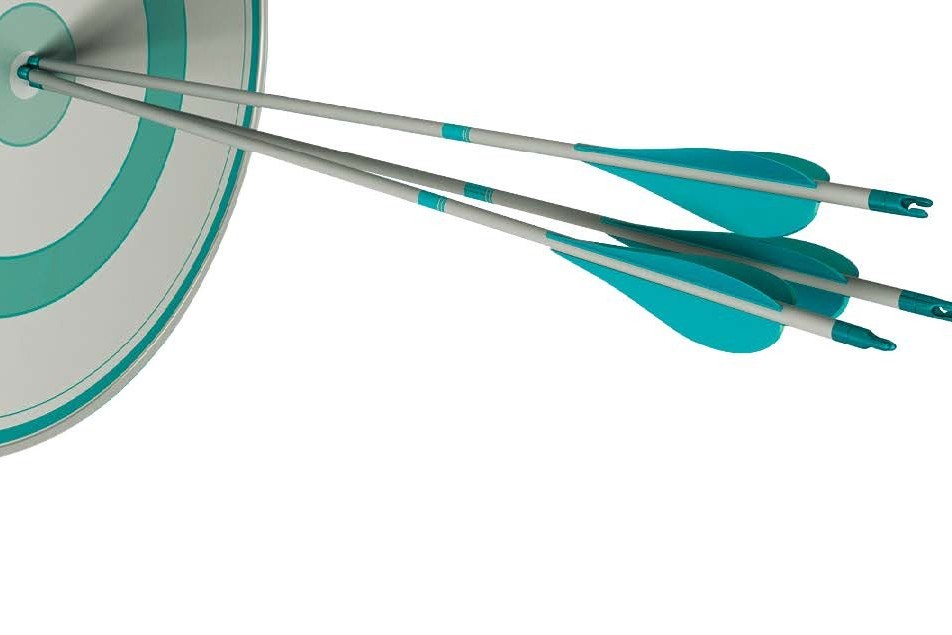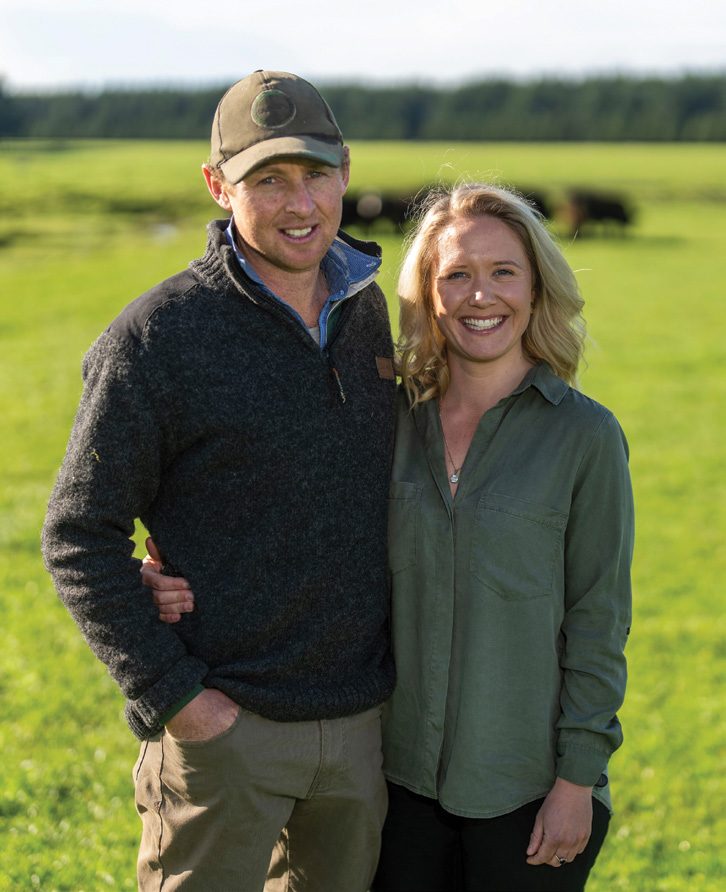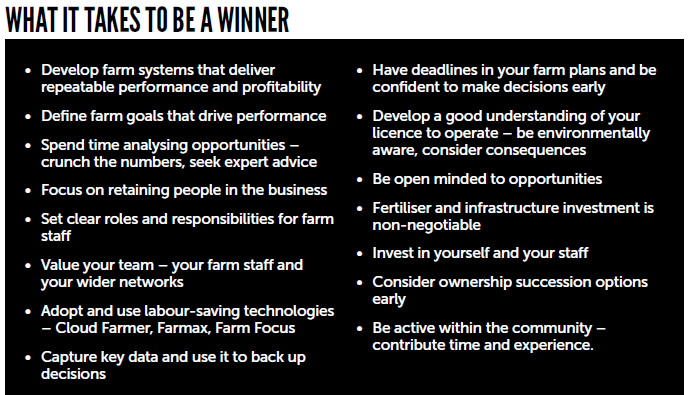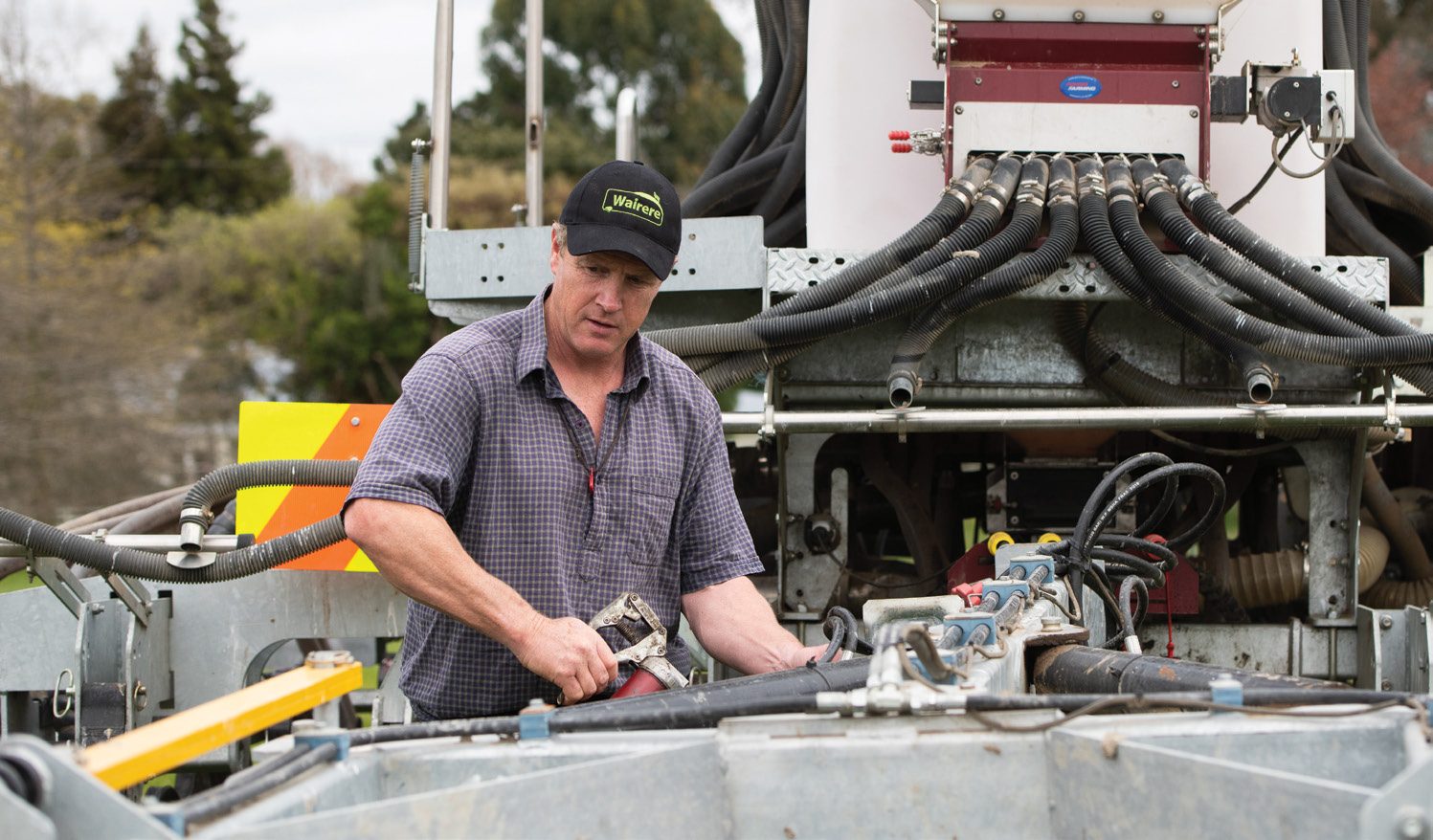Farm competition winners consistent
When farm business competition winners from the lower North Island shared their success stories at field days late last year, they all had a similar ring. Tony Leggett reports.

When farm business competition winners from the lower North Island shared their success stories at field days late last year, they all had a similar ring. Tony Leggett reports.
All four winners of the 2022 Central Districts, Tararua, Wairarapa and Hawke’s Bay farmer of the year contests were exceptional performers in their regions. No surprises there.
What makes them stand out is the consistency of their performance.
Driving that consistency are well-developed farm systems that cope with climatic and market factors.
At one extreme is the 100% trading operation run by 2022 Hawke’s Bay winner Hugh Abbiss. He’s constantly crunching the numbers on livestock trades to capitalise on the vagaries of the climate at the Tikokino station he manages.
Central Districts’ winner Ian Strahan also relies heavily on his spreadsheet skills to determine the trading stock component on his Kiwitea farm, matching stock to feed crops and pasture for maximum performance and profit, and assessing the value gained from fertiliser applications.
His confidence in achieving a profitable result from applying urea meant he made the call to go ahead, even when fertiliser prices were soaring last autumn.

Tararua winners Brent and Rachel Fouhy and partner Ben Simpson run a more traditional ewe flock and beef herd on their hill country properties near Pahiatua, but it comes with “natural” flexibility to offset climate and market impacts. They pivot between selling stock prime or store, depending on seasons, and are always mindful of the link between ewe condition and next year’s lamb crop.
Wairarapa’s winning business for 2022 has the challenge of needing to run thousands of ram hoggets right through the winter for sale as two-tooths the following spring. Derek Daniell’s Wairere operation uses strategic fertiliser applications to boost pasture growth to match demand at critical periods in the year.
Three of the winning farms had their financial performance run through the BakerAg FAB analysis system, which standardises farm costs so performance can be compared against similar farm businesses.
The Tararua winners have achieved a return on capital averaging 4.1% over the four years to 2020-21. It has ranged from a low of 3.2% in 2019-20 to 4.8% in 2017-18.
Wairarapa’s winning business has averaged 6.5% return on capital and ranged from 4.9% to 9.5% over the same period. The return on capital for the Central District’s winning farm averaged 5.2% and ranged from 4% to 6.6%.
The Hawke’s Bay winning farm showed a 2.8% return on capital in the 2020-21 financial year.

Clear goals set
Having well-defined, stated goals – both personal and farm performance – was another recurring theme among the winning farm businesses. Several of the judges commented on the clear goal setting apparent with each winning entrant.
Using technologies such as Cloud Farmer, Farmax/FarmIQ and Farm Focus to deliver data or communicate with staff was also common to all four winners. Wairere business manager Simon Buckley says the days of “seat of the pants” judgment were well over for modern farm businesses that are nudging the limits of stocking rate and liveweight gain goals.
As the challenge of recruiting and retaining good farm staff grows, all four winners mentioned the importance of their teams and also their broader networks of service sector people, from stock agents to agronomists, consultants and bankers.
Nurturing farm staff and providing scope for them to grow their skills was very evident in the Wairere business, but equally important to the other winners too.
The so-called “University of Wairere” is a nod to the dozens of young shepherds who have passed through the gates of the property over several decades.
Owner Derek Daniell is still evaluating his own succession plan but he’s been influential in the development of a large number of the top shepherds and managers across the country.
The Fouhy-Simpson equity partnership was discussed several times during the Tararua field day, clearly signalling the interest in this approach to ownership from younger, aspiring farm owners.
Equally interesting was the profit-share arrangement operated by the Hawke’s Bay winner Hugh Abbiss with farm owners Mike and Caroline Ritson-Thomas. Building sufficient equity to gain a foothold in farm ownership might have become more challenging than ever with the rise in land values in the past three years, but so has the willingness to explore new structures and approaches to ownership.
All four winners also showed they had embraced the need to demonstrate environmental best practice.

Exclusive use of direct drilling, retiring erosion-prone land to protect wetlands and waterways, and involvement in catchment groups were all highlighted at the field days.
A good example of best practice in action was Central District winners Ian and Steph Strahan who have consistently planted hundreds of native plants and built cattle fencing along three tributaries of the Haynes Creek that runs through their property.
It takes courage to enter competitions and be scrutinised by others, but all four winners said the experience was more beneficial than they expected.
The feedback from experienced judges during two rounds of judging was the most tangible reward, but an unexpected bonus was the pride they got from reflecting on what they had achieved over the past few years as they gathered up the material required for the entry.




